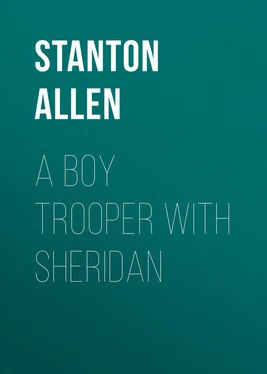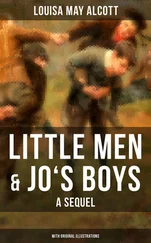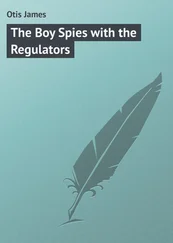Stanton Allen - A Boy Trooper With Sheridan
Здесь есть возможность читать онлайн «Stanton Allen - A Boy Trooper With Sheridan» — ознакомительный отрывок электронной книги совершенно бесплатно, а после прочтения отрывка купить полную версию. В некоторых случаях можно слушать аудио, скачать через торрент в формате fb2 и присутствует краткое содержание. ISBN: , Жанр: foreign_antique, foreign_prose, на английском языке. Описание произведения, (предисловие) а так же отзывы посетителей доступны на портале библиотеки ЛибКат.
- Название:A Boy Trooper With Sheridan
- Автор:
- Жанр:
- Год:неизвестен
- ISBN:http://www.gutenberg.org/ebooks/45024
- Рейтинг книги:4 / 5. Голосов: 1
-
Избранное:Добавить в избранное
- Отзывы:
-
Ваша оценка:
- 80
- 1
- 2
- 3
- 4
- 5
A Boy Trooper With Sheridan: краткое содержание, описание и аннотация
Предлагаем к чтению аннотацию, описание, краткое содержание или предисловие (зависит от того, что написал сам автор книги «A Boy Trooper With Sheridan»). Если вы не нашли необходимую информацию о книге — напишите в комментариях, мы постараемся отыскать её.
A Boy Trooper With Sheridan — читать онлайн ознакомительный отрывок
Ниже представлен текст книги, разбитый по страницам. Система сохранения места последней прочитанной страницы, позволяет с удобством читать онлайн бесплатно книгу «A Boy Trooper With Sheridan», без необходимости каждый раз заново искать на чём Вы остановились. Поставьте закладку, и сможете в любой момент перейти на страницу, на которой закончили чтение.
Интервал:
Закладка:
Some of the boys had packed up more extras than I had, and it went against the grain to part with them. But the inspectors knew their business – and ours, too, better than we, as we subsequently discovered – and we were made to understand that we were not going on a pleasure excursion. It is hardly necessary to say that there was scarcely an article thrown out by the inspectors that the soldiers would not have thrown away themselves on their first expedition into the enemy’s country.
After we had been inspected and trimmed down by the officers, we were reviewed by Governor John A. Andrew. He was attended by his staff, the department commander and other officers. Each company was drawn up in line in its barracks – it was sleeting outside. As the governor came into our quarters, the captain gave the command, “Uncover!” and the company stood at attention as the chief executive of the Old Bay State walked slowly down the line, scanning the faces of the men.
I remember that the governor looked at me with a sort of “Where-did-you-come-from, Bub?” expression, and I began to fear that my time had come to go home. The governor said to a staff officer:
“Some of the men seem rather young, Colonel!”
“Yes, sir; the cavalry uniform makes a man look younger than he is.”
“I see. They are a fine body of men, and I have no doubt we shall hear of their doing good service at the front.”
A few words of encouragement were spoken by the governor, and he passed on to the barracks of the next company.
It strikes me that Governor Andrew reviewed us again as we were marching from the barracks to the railroad station, but I am not clear on this point. I know there was a good deal of martial music, waving of flags, cheering and speech-making by somebody. Our horses claimed our undivided attention till after we had dismounted and put them aboard the cars. On the way down to the railroad an attempt was made somewhere near the barracks to form in line, so that we could be addressed by the governor or some other dignitary. It was a dismal failure. Our steeds seemed to be inspired by “Hail to the Chief,” “The Girl I Left Behind Me,” and other patriotic tunes played by the band, and they pranced around, stood upon their hind legs and pawed the air with their fore feet, to the great terror of the recruits and the delight of all the boys in the neighborhood who had gathered to witness our departure. How the boys shouted!
“Hi, Johnny, it’s better’n a circus!”
“Guess ‘tis – they don’t fall off in a circus; they just make b’lief.”
“Well, these fellows stick tight for new hands.”
It was fun for the boys – the spectators – but just where the laugh came in the recruits failed to discover. I was told that the governor – or somebody – gave us his blessing as we rode by the reviewing officer, but I have no personal knowledge on the subject.
After we had put our horses on board we waited a few minutes before entering the cars while the other companies were boarding the train. There was a chain of sentinels around us, and Mrs. Waterman was outside the line. She caught sight of us as we stood there, and she advanced toward us.
“Halt – you can’t go through here!” commanded one of the sentinels.
“I must go through.”
“But my orders – ”
“I don’t care; my boys are there, and I’m going to speak to them again.”
She came through and gave us her parting blessing once more.
“Boys, I’ll pray God to keep you and bring you both back to your mothers – God bless you; good-by.” The mother’s prayers were answered. Her son and his tentmate were spared to return at the close of the war.
There was a scramble to secure seats when orders were given to board the cars. Good-bys were said. Mothers, wives and sweethearts were there, and with many it was the last farewell. The whistle blew, the bells rang, the band played, the troops remaining at Camp Meigs cheered and we cheered back. The train moved away from the station, and we were off for the front.
I never saw Governor Andrew again, but I recall his appearance as he reviewed our company in the barracks very distinctly. I observed that while inspecting officers paid more attention to the arms and accoutrements of the men the governor was particular in looking into the faces of the recruits, to satisfy himself, no doubt, that they could be trusted to uphold the honor of the State when the tug of war should come. John A. Andrew was one of the “war governors” whose loyal support of President Lincoln’s emancipation programme held the Northern States in line when the time came for the President to issue the proclamation that freed the slaves of the States in rebellion against the Government.
The proclamation was promulgated September 22, 1862, a few days after the battle of Antietam. It is on record that Lincoln had made the draft of the document in July, and had held it, waiting for a Union victory, that he might give it to the country at the same time that a decisive defeat of the rebels was announced. The second battle of Bull Run came, and Pope’s shattered army retreated into the works around the national capital. Lee, with his victorious followers, crossed the Potomac into Maryland. The Confederate chief hoped to rally the disloyal element in that State and along the border under the rebel flag. It began to look as though the victory Lincoln was waiting for would never come. It was one of the darkest hours of the conflict. What would have been the effect of issuing the Emancipation Proclamation at that time? The rebels had invaded the North! The Union army had been defeated – everything seemed to be going to destruction!
Lincoln is credited with saying in respect of the rebels crossing the Potomac just before the battle of Antietam:
“I made a solemn vow before God, that if General Lee were driven back from Maryland, I would crown the result by a declaration of freedom to the slaves.”
September 24, 1862, two days after the proclamation was issued, Governor Andrew, with the governors of other loyal States, at a meeting at Altoona, Penn., adopted an address to the President that must have set at rest any doubts the chief magistrate may have had that his policy was the policy of the loyal people of the North. The document was inspired and executed by patriots in whom the citizens of the loyal States reposed unbounded confidence. They declared:
“We hail with heartfelt gratitude and encouraged hope the proclamation of the President, issued on the 22d inst., declaring emancipated from their bondage all persons held to service or labor as slaves in rebel States where rebellion shall last until the first day of January ensuing.
“Cordially tendering to the President our respectful assurances of personal and official confidence, we trust and believe that the policy now inaugurated will be crowned with success, will give speedy and triumphant victories over our enemies, and secure to this nation and this people the blessing and favor of Almighty God. We believe that the blood of the heroes who have already fallen and those who may yet give up their lives to their country will not have been shed in vain.
“And now presenting to our chief magistrate this conclusion of our deliberations, we devote ourselves to our country’s service, and we will surround the President in our constant support, trusting that the fidelity and zeal of the loyal States and people will always assure him that he will be constantly maintained in pursuing with vigor this war for the preservation of the national life and hopes of humanity.”
CHAPTER IV
Arrival at Warrenton – Locating a Camp – Dog Tents – Building Winter Quarters – On Picket – A Stand-off with the Rebels – A Fatal Post – Alarm at Midnight – Bugle Calls – The Soldier’s Sabbath – The Articles of War and the Death Penalty.
Читать дальшеИнтервал:
Закладка:
Похожие книги на «A Boy Trooper With Sheridan»
Представляем Вашему вниманию похожие книги на «A Boy Trooper With Sheridan» списком для выбора. Мы отобрали схожую по названию и смыслу литературу в надежде предоставить читателям больше вариантов отыскать новые, интересные, ещё непрочитанные произведения.
Обсуждение, отзывы о книге «A Boy Trooper With Sheridan» и просто собственные мнения читателей. Оставьте ваши комментарии, напишите, что Вы думаете о произведении, его смысле или главных героях. Укажите что конкретно понравилось, а что нет, и почему Вы так считаете.












